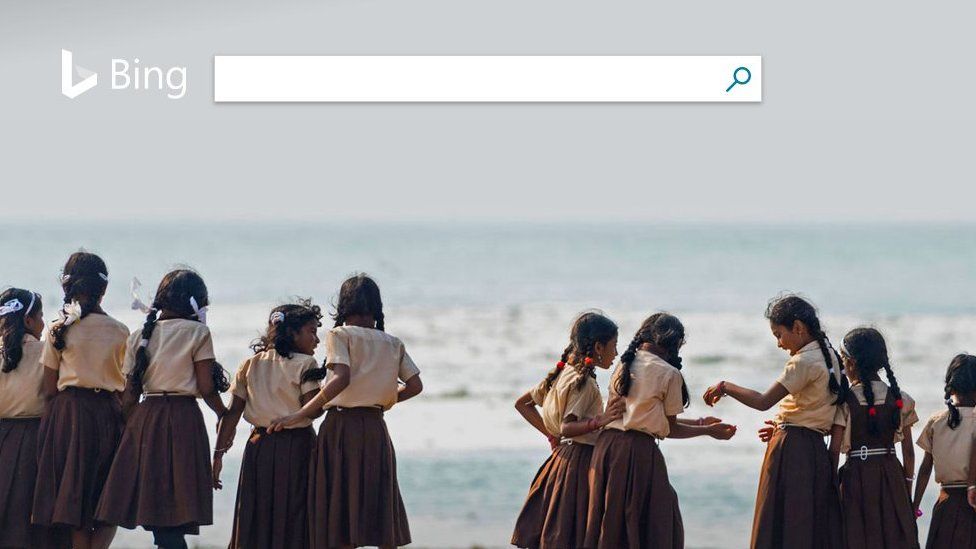Microsoft tackles 'horrifying' Bing search results
- Published

Microsoft has "taken action" to change its Bing search engine after it was found to give "horrifying" results for some terms.
Journalist Chris Hoffman discovered Bing suggested racist topics when he looked up words such as "Jews", "Muslims" and "black people".
Bing also ranked widely debunked conspiracy theories among the top suggestions for other words.
Mr Hoffman said Microsoft had to do better at moderating its search system.
Deeper look
In his investigation, Mr Hoffman looked up racially-themed terms and found that the majority of suggestions for further searches that accompanied results pointed people to racist sites or images.
Racist memes and images were also returned for many of the words he tried.
"We all know this garbage exists on the web, but Bing shouldn't be leading people to it with their search suggestions," wrote Mr Hoffman.
It is believed that the suggestions for further searches connected to these terms have emerged from a combination of user activity and concerted action by far-right groups to skew responses.
Mr Hoffman also found "disgusting" results when searching for images of young girls with Bing's safety filters turned off.
The racial examples are similar to those found in 2016 by Guardian journalist Carole Cadwalladr, when she used the Google search engine to look up facts about the Holocaust.
Ms Cadwalladr found that results for "did the Holocaust happen?" were dominated by pages denying it took place that had been created by white supremacist site Stormfront.
In response to Mr Hoffman's findings, Jeff Jones, a senior director at Microsoft, said: "We take matters of offensive content very seriously and continue to enhance our systems to identify and prevent such content from appearing as a suggested search.
"As soon as we become aware of an issue, we take action to address it," he added.
The BBC repeated some of the searches carried out by Mr Hoffman and found that the results returned contained far fewer responses that pointed people towards overtly racist sites or images.
Bing has about a 24% share of the search engine market in the US, second to Google at 63%, suggest figures from analyst firm Statista. In the UK, Bing is used in 12% of all searches.
- Published20 December 2016
- Published10 October 2018
- Published20 February 2017
- Published28 March 2017